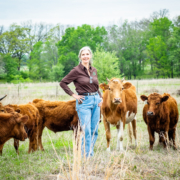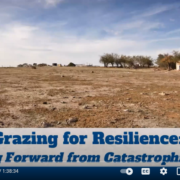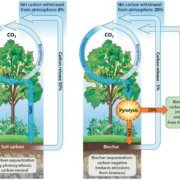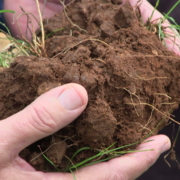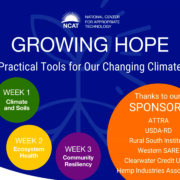Healthy Foundations for Wicked Problems
 Print This Post
Print This Post
By Elise Haschke, Climate Smart Agriculture Coordinator, and Darron Gaus, Sustainable Agriculture Specialist
The word wicked has multiple meanings, depending on whether you are a New Englander or a priest. In the age of problems like climate change and natural resource scarcity, wicked has become a new adjective. Across the globe, within our communities and in our own front yards, we are witnessing increasingly unpredictable and chaotic climate disruption, natural resource scarcity, and rapid biodiversity loss. Wicked problems are so complex and systemic that they can’t be solved by traditional top-down processes or linear thinking. It takes many minds and hands to come together to lift up solutions and seek real success.
Accelerating adoption of soil health practices in agriculture is multi-dimensional. For example, in the face of increasing climate disruption, adopting soil health practices with proven climate benefit does not only impact farmers. These regenerative approaches also improve our shared water and air resources, conserve wildlife habitat and biodiversity, advance economic prosperity, strengthen food system resilience, and preserve cultural heritages. Collective leadership can remove frames and holistically look at the entirety of the problem. A Texas Soil Wealth Alliance can be the loom that weaves together an extraordinary patchwork of soil health progress to create a full-picture tapestry that represents a shared vision for statewide soil wealth and scales collective impact. More about coalition-building to combat climate change can be heard in Episode 277 of Voices from the Field.
It will take a diverse coalition of problem solvers sharing many varied perspectives and extensive knowledge to jointly pursue creative and practical endeavors towards the shared future we envision. The process of discovery will be guided by questions such as: What does a climate resilient and economically equitable food production landscape look like for Texas? What are Texas’s natural resource assets, what is their current state of health, how are they important to agriculture and what role can agriculture have in maintaining or restoring these natural resources? What existing and future climate disruptions will impact Texas, and with what frequency and severity? How can farmers build their capacity to adapt to these anticipated conditions? What are the quantifiable benefits of and realistic targets for increased soil organic matter, including carbon sequestration, indicators of soil health, water holding capacity, and wildlife and biodiversity conservation? You can read more about the design of the Texas Soil Wealth Alliance in the blog Healthy Soils for a Wealthy Tomorrow.
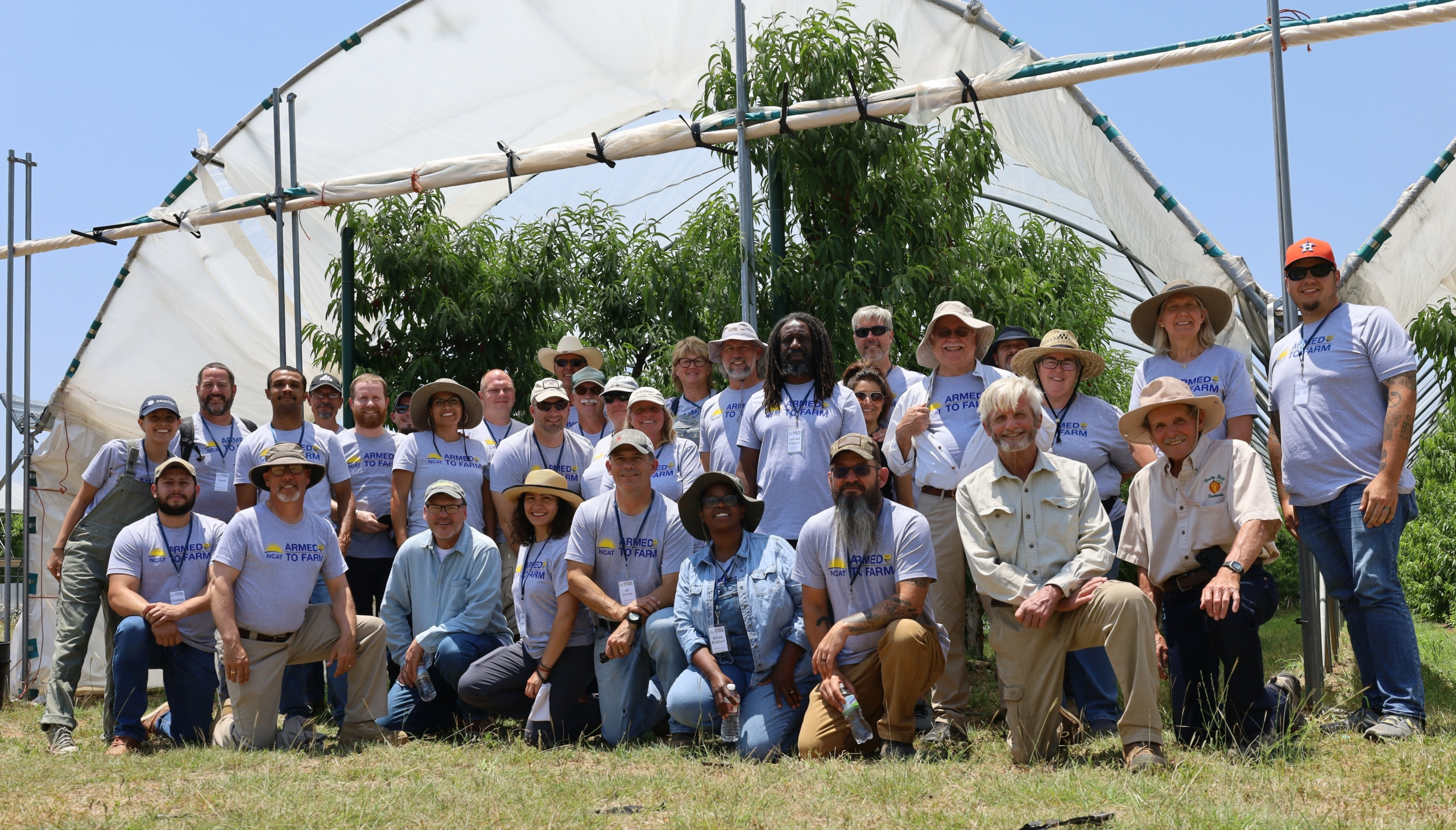
Convening for shared learning at an NCAT Armed to Farm Workshop in Texas, 2022. Photo: NCAT
Don Campbell, a Canadian rancher, infamously said, “If you want to make small changes, change how you do things. When you want to make major changes, change how you see things.” The solution we seek is through seeing with each other’s eyes and building robust solutions that honor the diversity of backgrounds coming together around a shared vision and values. Philosopher John Ralston Saul speaks to proper solutions-forward alliance building in his quote “The reality is that the division of knowledge into feudal fiefdoms of expertise has made general understanding and coordinated action not simply impossible, but despised and distrusted.” When individual stakeholders compete to prove a singular approach will adequately address complex and systemic problems, it can be a disservice to the greater effort and detract from realizing a complete vision for positive change. Building a team of organizations that have stake in any and all areas of a wicked problem is pivotal to creating real solutions.
There are beacons of soil-centric agriculture and technical support throughout Texas. The true path to transformative action is to embrace collective impact and bridge geographies, ideologies, disciplines, and cultural diversity. Joining together in collaborative engagement will streamline focus and allow each individual, each organization, to live their highest level of contribution towards a shared vision for the economic, environmental, and human health sustainability of a truly regenerative and resilient Texas food system.
What does effective team building mean to you? What climate impacts and soil health-related resilience have you observed on your farm or ranch? We’d love to hear from you, especially if you’re reading this in Texas. Email us at southwestregionaloffice@ncat.org to share your experience building healthy soil for a wealthy tomorrow.
Related NCAT Resources:
Managing Soils for Water: How Five Principles of Soil Health Support Water Infiltration and Storage
Building Healthy Pasture Soils
This blog is produced by the National Center for Appropriate Technology through the ATTRA Sustainable Agriculture program, under a cooperative agreement with USDA Rural Development. ATTRA.NCAT.ORG.

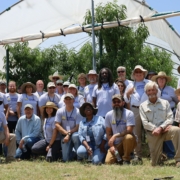 NCAT
NCAT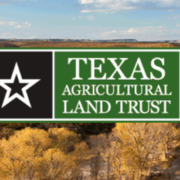
 USDA Photo by Lance Cheung.
USDA Photo by Lance Cheung.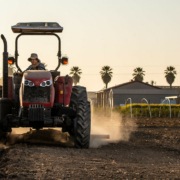 USDA
USDA